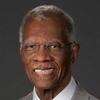Corporate Representative's Role and Testimony at Trial: When to Consider Appearance-Only Representatives
Scope of Questioning, Prior Testimony, Appearance v. Rule 30(b)(6) Designees, Limits on Cross-Examination
Recording of a 90-minute CLE video webinar with Q&A
This CLE webinar will discuss the role of corporate representatives at trial and strategies for counsel either representing or opposing the company. The panel will discuss selecting "appearance" only representatives and those who have also been deposed under Federal Rule 30(b)(6). The panel will review factors to consider when deciding whether to have an "appearance" representative or not, how that designation limits opposing counsel's options on cross-examination, and what risks the appearance representative faces. The program will also review Rule 32 and other applicable procedural and evidentiary rules.
Outline
- Applicable Federal Rules of Procedure and Evidence
- Scope of questioning in discovery vs. at trial
- Use of prior testimony
- Rule of sequestration
- Role of appearance representatives at trial
- Generally
- When appearance representatives were not 30(b)(6) designees
- When appearance representatives were 30(b)(6) designees
- Limits on cross-examination
- Perils of calling adverse witnesses on direct
- Strategies for the company
- Strategies for opposing counsel
Benefits
The panel will discuss these and other key issues:
- Should a corporate representative--either in an appearance or a 30(b)(6) capacity--be treated as a party versus a non-party witness to the litigation?
- Can a person designated as the corporate representative for appearance purposes only be protected from being called by the opposing side as an adverse witness in his or her capacity as a corporate representative?
- Is listing "a corporate representative of the defendant," or adopting the other party's witness list, sufficient to include the corporate representative designated for purposes of appearance at trial?
- What application does Federal Rule 32 have?
Faculty

Anthony L. Cochran
Partner
Smith Gambrell & Russell
Mr. Cochran represents individuals and businesses in a wide variety of matters. He has tried jury trials, bench trials,... | Read More
Mr. Cochran represents individuals and businesses in a wide variety of matters. He has tried jury trials, bench trials, administrative and regulatory hearings, and medical peer review hearings. He has appeared on many panels and spoken at seminars on a variety of topics, including the application of the Daubert rule and a host of topics related to white-collar criminal law and investigations.
Close
Peter A. Silverman
Partner
Smith Gambrell & Russell
Mr. Silverman has broad-based experience representing clients in sophisticated business disputes, litigation, and... | Read More
Mr. Silverman has broad-based experience representing clients in sophisticated business disputes, litigation, and appeals for more than 30 years in state and federal courts and has consistently achieved his client’s objectives, employing sound judgment, careful analysis and aggressive determination.
Close
Richard H. Sinkfield
Partner
Smith Gambrell & Russell
Mr. Sinkfield is nationally recognized as a leading defense trial attorney for bet-the-company cases and is frequently... | Read More
Mr. Sinkfield is nationally recognized as a leading defense trial attorney for bet-the-company cases and is frequently named among the very best trial attorneys in Georgia. A founding partner of Rogers & Hardin, he handles complex litigation matters, often with sizeable monetary values, in Georgia courts as well as in other jurisdictions. Mr. Sinkfield is recognized both for his trial and appellate advocacy skills in complex business litigation, with extensive experience in securities, business torts, and director, officer and professional liability litigation.
Close